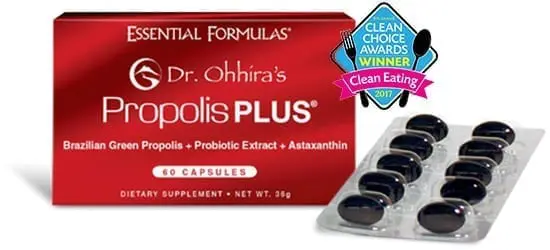By Ross Pelton, RPh, PhD, CCN
When newborn infants are in need of critical medical attention, they are normally admitted to the hospital’s neonatal intensive care unit (NICU). These infants are frequently delivered preterm, often via C-section delivery, have low birth weight, and/or have serious medical conditions. It has been reported that approximately 10% of premature infants (less than 29 weeks gestation) develop a life-threatening condition called necrotizing enterocolitis (NEC).i
Necrotizing enterocolitis (NEC) is an inflammatory bowel condition in which a portion of the inflamed bowel dies.ii Consequently, necrotizing enterocolitis (NEC) is the most common cause of neonatal illness and death in neonatal intensive care units.iii
To date, the cause of necrotizing enterocolitis is not well understood, there is no agreed upon protocol for treatment and therefore, the medical community recognizes that effective therapies to prevent and treat NEC are urgently needed.iv
Probiotics for NEC: Recent studies are beginning to highlight the fact that intestinal dysbiosis precedes the development of necrotizing enterocolitis in preterm infants.v Numerous studies have been published which report that administration of probiotics to preterm infants reduces the incidence and death rate from NEC.vi However, several areas of concern still prevent probiotics from gaining widespread acceptance in the treatment of NEC. Issues of concern are, what are optimal doses, length of dosing, which strain or combination of strains are most effective, and what are the risks of administering live bacteria to preterm infants with immature intestinal barriers or impaired immune defenses.vii
Postbiotics for NEC: Using compounds produced by bacteria, which are classified as postbiotic metabolites, is an exciting, yet largely unexplored, therapeutic option for the preventing and treatment of NEC. Postbiotics are the metabolic by-products produced by the bacteria living in your gastrointestinal tract. Administering postbiotic metabolites may provide the beneficial therapeutic effects of probiotic bacteria while avoiding the risk of administering live microorganisms to preterm infants with immature intestinal barriers or impaired immune defenses.
Human clinical trials utilizing postbiotic metabolites have not yet been conducted. However, the therapeutic benefits of numerous types of postbiotic metabolites are known. For example, the short-chain fatty acid butyrate is the primary energy source the growth of healthy new epithelial cells in the intestinal tract.viii Some postbiotics also provide anti-inflammatory activityix, antioxidant activityx and immune system enhancing effects.xi
The Future of Postbiotic Therapy
Many of the benefits provided by probiotic bacteria are derived from their postbiotic metabolites. Thus, the identification and delivery of postbiotic metabolites opens up a whole new area of potential therapies for the prevention and treatment of gastrointestinal disorders. In the future, protocols that directly deliver postbiotic metabolites may prove to be safer, faster and more effective than simply providing probiotic bacteria.






